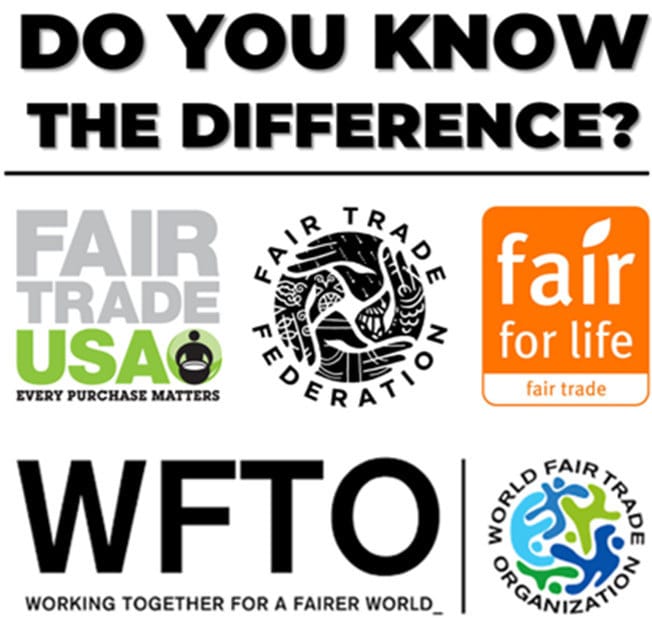As a responsible consumer, how do you ensure that you buy only ethically produced products?
Most brands use terms like sustainable, green and organic as part of their marketing strategy. However, these terms are not regulated and hence they can be used indiscriminately.
Nevertheless, a “Fairtrade” label is not to be taken lightly, as it can only be used by businesses that have been certified by a recognized Fairtrade organization.
The early days of Fair Trade movement began in 1897 by Herbert Booth, who was William Booth’s son, the founder of The Salvation Army. In 1987, he founded Hamodava Tea Company in Melbourne, Australia. He had developed a business model which sought to pay fair prices to the tea farmers, while also offering a scheme to buy their own lands giving them financial independence.
Fairtrade certification implies that the product was made following fair practices that protect farmers, suppliers, and employees throughout the supply chain network. Fairtrade certification also suggests that the product meets the social, economic and environmental standards laid down by the certifying organization.
The global Fairtrade movement works towards empowering the working community and ensuring that small-scale farmers, artisans, and wage workers enjoy decent working conditions and fair wages for their efforts.
These organizations aim to create a sustainable model by fixing minimum prices and inspecting all levels of the supply chain to ensure compliance with labor laws and licensing requirements. Thus, producers are compensated for their efforts, while consumers get better quality products.
There are four main Fairtrade certifying organizations. Let us take a closer look at each of them.
Fair Trade USA
This organization promotes fair trading as a social movement that empowers workers with positive changes while offering superior choices to consumers. The businesses they work with meet rigorous standards that are specific to the relevant industry.
Fair Trade USA encourages setting up of community development funds and helps to create transparent supply chains for products that align with ethical values of conscious customers.
The end goals of the organization are income sustainability, the well-being of the individual and community, and environmental stewardship.
Fair for Life
This organization evaluates and certifies all types of commodities, including raw materials and finished goods. Instead of simply certifying a finished product or selected steps in the production process, Fair for Life certifies each step separately as well as entire companies.
The third-party certifier, IMO, conducts inspections. The end goal is to establish transparency in business at all levels and improve relations between brands and producers by fixing standards at each stage.
World Fair Trade Organization
The WFTO, consists of 324 members in over 70 countries and is the global advocate for Fair Trade practices. They offer membership to producers, marketers, exporters, importers, and sellers who demonstrate 100% commitment to Fair Trade practices.
The WFTO lays down 10 important principles of Fair Trade, that all members must adhere to. They strictly evaluate all supply chain practices followed by the brand, before granting membership. All decisions are made considering the best interests of producers, small-scale farmers, and artisans. The WFTO label guarantees fair production and purchase options that enable producers to improve their livelihoods and communities.
Fair Trade Federation
The FTF is a community of businesses committed to fair trade practices at every level of operation. They aim to go beyond just fair wages and safe working conditions. Instead, the FTF encourages long-term partnerships that mutually benefit producers and businesses, and creates positive social, economic and environmental changes at every level.
Their focus is on building sustainable and fair-trade partnerships that end poverty and empower and grow producers, artisans and farming businesses.
In summary, there are four main organizations committed to the Fair Trade movement. Each one of them individually contributes to improving various aspects of the business. At Farmer Soul, we carry products certified by Fair Trade USA and World Fair Trade Organization. We have Fair Trade Certified felted wool products from Nepal and HDIF World Fair Trade Guaranteed from crochet keychains from Armenia.

